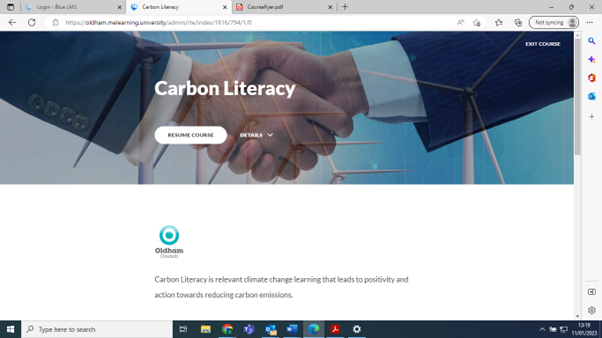In economics, the environment is viewed both as a common resource through life-supporting systems and a source of wealth, which offers opportunities for production. It is examined mainly from two perspectives: environmental economics and ecological economics.[1]
Environmental economics is based on conventional economics, but it acknowledges its deficiency concerning the environmental problems by taking externalities into count. Externality is a market failure that causes inefficiency. This means a situation where the decisions of one actor affect the well-being of another actor other than through the market. Negative externalities can be internalized e.g. through a tax.[2] In case of circular economy, the negative externalities of e.g. clothing industry could be solved at least partly by imposing a tax on the products that aren’t made from recycled materials. This is an example how environmental economists would solve environmental problems within a market economy.
Ecological economics see the economy as a subsystem of Earth's larger ecosystem. It questions conventional economics and its assumptions, e.g. market economy leads to the best solution and that economic growth increases well-being. Especially the latter differs from environmental economics: ecological economists do not believe in sustainable economic growth. They believe we need to reshape our entire economy to fit within environmental limits.[3][4] There are different schools of thought in ecological economics like steady-state economy and degrowth.
Economic growth refers to the growth of the productive capacity of goods and services in the national economy. It’s measured in terms of growth in GDP. According to the theory of economic growth, technological development is the main source of growth. Technology here refers to not only ‘technology’ but all the ideas on how to make factors of production (labor, both material and human capital, and natural resources) into products and services as efficiently as possible. For example, circular economy business models could be considered as technologies. So, economic growth is ultimately an increase in the number of ideas, and not necessarily just constantly producing even more products. Since there is no upper limit on the number of ideas, there’re in principle no restrictions on economic growth either. This is the reason why economists generally believe in sustainable growth.[1]
Economic growth is sustainable when the well-being of the future society is at least as high as ours today. This definition follows from the definition of the sustainable development.[1][5] To achieve sustainable growth (also called green growth), we need to decouple the environmental impact and the use of natural resources from the economic growth. This means that although we create growth, at the same time we decrease our use of depletable natural resources and reduce our environmental impact.[6][1] This is also one of the main goals of circular economy.
Circular economy’s advantage is that it interests both business and policy-making communities.[7] Economists have been studying aspects of the circular economy (recycling, limited resources, waste) for a long time. For example, recycling and the idea of limited resources have been included in economic growth models.[8] However, many aspects remain to be studied, like sharing models and product service system models.
But can circular economy create sustainable economic growth?
Environmental economists (and economists generally) consider that circular economy creates growth since it e.g. increases resource and energy efficiency and creates added value when materials are used several times instead of only once. There’s also some empirical evidence of circular economy creating growth.[9][10][11] However, they point out that material recycling doesn’t automatically create growth, since it displaces other production activities.[8]
As mentioned above, ecological economics decline the idea of sustainable growth entirely. They base this argument on nature: “economy, like any other subsystem on the planet, cannot grow forever”.[3] Moreover, they don’t believe human capital could create as much growth as physical capital. Anyway, they do believe that circular economy is necessary since it prevents the depletion of non-renewable resources and reduce environmental impacts. However, they see that not even the circular economy is enough to create sustainable growth.[7]
All in all, the topic divides economists. However, most of them see that sustainable economic growth is possible in the future, and it can be done within a market economy. They also believe that circular economy is a necessary tool to accomplish it.[9] Anyway, there is a need for further research on this matter.
Auri Lassi
Economics student at the University of Turku and trainee in Circular business models research group (Turku University of Applied Sciences)











